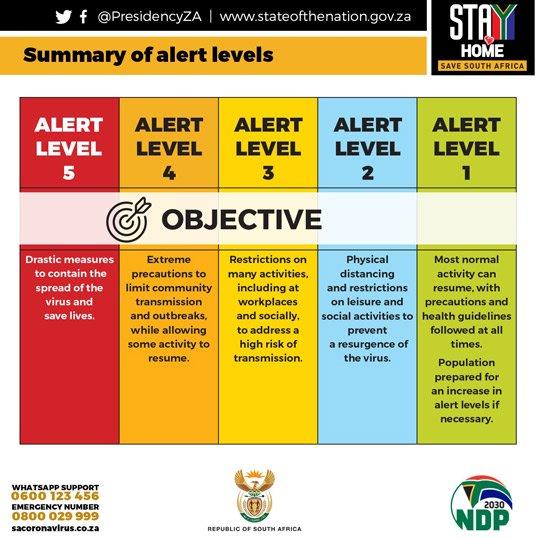President Cyril Ramaphosa is expected to announce that South Africa will move to lockdown level 1 in the near future when he addresses the nation next week.
There was no significant change in the infection rate when moving from level 3 to level 2, which is informing the potential move to level 1.
Ramaphosa said the National Coronavirus Command Council (NCCC) is evaluating a number of proposals around the further easing of lockdown restrictions.
One of the requests he received was from religious leaders, specifically around increasing the number of people who may attend gatherings.
The president said the NCCC is also considering requests from the sporting fraternity, the entertainment sector, hotels, and tourism.
“We are considering all of that as we do an evaluation of where the infection rate is. We will be able to give consideration to all of these proposals and get advice,” he said.
Health Minister Zweli Mkhize has also said South Africa will need to move to a level 1 lockdown and a return to “normal activities” as part of its economic recovery.
The minister added it was too early to provide a date as to when the country could move to level 1, but confirmed the government was currently discussing the issue.
“The president will come out in the next few days and give us a sense of direction, but we will be preparing for people to start easing to the next level,” said Mkhize.
What lockdown level 1 may look like
The government previously explained that “Alert Level 1” indicates a low COVID-19 spread with a high health system readiness.
Under level 1 “most normal activities can resume, with precautions and health guidelines followed at all times”.
The government has not given specifics as to what lockdown level 1 will look like, but current restrictions and feedback from ministers shed some light on what to expect.
One of the major changes expected under level 1 is the opening of the country’s borders and allowing international travel.
Yesterday, Transport Minister Fikile Mbalula said international travel will be opened “very soon”.
He said many other countries are starting to open international travel, which is guiding the government’s decision on the matter.
While international travel is expected to be opened, it is likely to be restricted to countries which do not pose a significant risk.
The Department of Sports, Arts and Culture, in turn, has been leading discussions on protocols to re-open the country’s events industry.
This follows proposals to allow larger events to take place with social distancing measures in place.
It is also expected that some restrictions on international sports events and spectators attending sporting events will be eased.
Exclusions relating to education services at schools and universities are under discussion, too, with some changes expected.
While many restrictions will be eased, health protocols like wearing masks, social distancing, and sanitising are expected to remain in place.
The elderly and people with comorbidities will continue to be encouraged to stay at home, and take additional precautions when leaving home.



